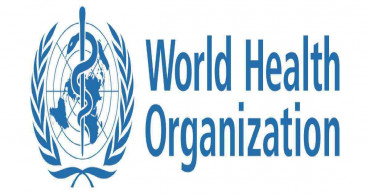health services
MPs from all sides come down hard on Health Ministry
Lawmakers from across the aisle on Sunday expressed resentment at the Health Ministry as people are not getting health services due to the deplorable state of upazila and district health complexes in their respective areas.
Speaking during the question-answer session, they alleged there are serious shortage of doctors, nurses and other health staff in different health complexes and hospitals in their constituencies causing serious hampering of providing health services to people.
Also read:Bill to establish new hydrocarbons agency placed in JS
The treasury and opposition MPs also raised their voices saying many doctors and nurses who are posted in upazila health complexes, do not stay there.
AL MP Dhirendra Debnath and Zilluk Hakim separately said that people in their constituency are not getting health services due to lack of doctors, consultants and health staff.
Another senior MP of AL, Shajahan Khan said a 50-bed hospital in his constituency was increased to 250 beds. But people are not getting benefits of this as no additional doctors and nurses were recruited for the hospital.
“Earlier in parliament, I raised the same issue before the health minister and he gave me assurance to appoint additional doctors and other staff for the hospital. But no measures were taken so far,” he said.
Another AL MP SM Shahzada in his speech said he is in big trouble due to the sorry state of the health complex in his constituency.
He also said the lone health complex in Golachipa upazila under his constituency—Patuakhali-3 remained in a very sorry state.
“This health complex was established a long time ago. It is in a dilapidated condition,” he said.
He mentioned that there are several buildings inside this health complex which have been declared abandoned due to their dilapidated condition.
He said that this upazila has a population of 5 lakhs. There are about two and a half lakh more people in the adjoining upazila (Rangabali).
Also read:JS selects 5-member panel of chairpersons
“Health services of two upazilas are managed from this health center,” he also said.
The AL MP also said that he wrote to the minister two and a half years ago for a new health complex.
Jatiya Party MP and Opposition Chief Whip Moshiur Rahman Ranga said there are costly medical equipment for treatment of kidney dialysis and cancer remaining unused in a hospital in his area for years.
He said those expensive medical equipment cannot be used due to not having technical staff.
BNP MP Rumeen Farhana said due to inefficiency of the government, the health ministry couldn’t spend a major portion of the money allocated in the development budget.
AL MP Shahiduzzaman Sarker, Moazzem Hossain Ratan, Shahiduzzaman, Bikolpodhara Bangladesh MP Abdul Mannan, Gono Forum MP Mokabbir Khan, Jatiya Party MP Kazi Firoz Rashid also strongly criticized the health minister.
In reply to MPs' outcry, Health Minister Zahid Maleque admitted that there is a shortage of doctors and other staff in different hospitals and health complexes in the country.
He, however, said, the government has reappointed many doctors and nurses during the Covid-19 pandemic and more doctors and other health staff will be appointed soon.
3 years ago
Mia Seppo lauds Bangladesh’s Covid control
UN Resident Coordinator in Bangladesh Mia Seppo has appreciated the joint efforts in testing, tracing and treating patients, and thus keeping the pandemic under control in Bangladesh.
"I’ve been delighted to see how the support provided by the United Nations and our partners has enabled the government to employ innovative methods of testing, tracing and treating patients, and thus keeping the pandemic under control in Bangladesh,” she said.
When Covid-19 arrived in Bangladesh in March 2020, Mia said, there were serious concerns over how the country’s health system would be able to cope with the overwhelming challenges posed by the pandemic.
Read: Climate crisis no longer a looming crisis: Mia Seppo
She made the remarks after a delegation from the Government, United Nations, and NGO partners observed efforts to combat COVID-19 transmission in Dhaka.
Senior Secretary of the Health Services Division Lokman Hossain Miah and Additional Director General of DGHS, Prof Dr Nasima Sultana also joined the field mission.
The Senior Secretary praised the Government’s partners for their support in containing the pandemic in Bangladesh.
With funding provided by the World Bank Pandemic Emergency Funding Facility, USAID and the Foreign, Commonwealth and Development Office of the United Kingdom (FCDO), the government of Bangladesh, several United Nations agencies (FAO, UNFPA, UNICEF, WFP and WHO), non-governmental and civil society organizations are conducting an innovative initiative to reduce the transmission of Covid-19 in communities across Bangladesh.
Read: World needs journalists more than ever: Mia Seppo
The programme – called the Community Support Team (CST) initiative – deploys teams of volunteers into low-income urban slum communities to help identify symptomatic Covid-19 cases and supports them and their families with home-based case management, hospital referral, telemedicine support, and screens for vulnerable individuals with pre-existing conditions such as diabetes and hypertension.
CST teams are also assisting households with on-the-spot vaccination registration and vaccine card printing.
The teams consist of local volunteers and trained community health workers from a variety of NGO partners, including BRAC, CDP, Himu, and Platform. CST members also distribute locally made cloth masks, provide counseling and guide communities on preventing the spread of the virus by maintaining strict health and safety measures.
4 years ago
Finance Minister writes a big cheque for health sector
As the Coronavirus pandemic has taken its toll on human health, Finance Minister AHM Mustafa Kamal on Thursday proposed an allocation of Tk32,731 crore for health services and health education sector, up Tk 3,484 crore than last year’s allocation.
The minister came up with the proposal while unveiling the national budget for the 2021-22 fiscal year in Parliament.
With the new allocation, the health sector 5.42 percent of the total budget and 12 percent increase in absolute terms.
Though the government has given priority to the protection of lives and livelihoods, the total allocation is still nearly 1 percent of the GDP. But the World Health Organization recommends it should be at least 5 percent.
Health experts, however, said the proper implementation of the allocation is a big challenge for the health sector as the Health Ministry has long been manifesting poor performance in utilising the budgetary allocation.
They said the health ministry could not spend around Tk 9,000 crore of the development budgets of this sector in the outgoing fiscal year.
Also read: New budget unveiled with focus on protecting lives and livelihoods
The experts warned that without well-thought-out plans, alongside their proper implementation and effective management, the intended goals cannot be achieved through the allocation earmarked for the health sector.
They also said the Health Ministry should now first identify the areas of expenditure and the demands of the health sector based on priorities, for an upgrade to the country’s healthcare services.
In his budget speech, the minister said, “Giving an utmost priority to the programmes and steps taken by the government to address the Covid-19 pandemic, I propose to allocate Tk. 32,731 crore for the Health and Family Welfare sector in the next fiscal year, which was Tk. 29,245 crore in FY2020-2021.”
Like last year, he said, they have made a slight deviation from the traditional budget for the sake of effectively combatting the Covid-19 pandemic and resolutely overcoming its economic impact by giving priority to protection of lives and livelihoods.
4 years ago
COVID-19 continues to disrupt essential health services in 90pc of countries: WHO
The second round of a World Health Organization “pulse survey“ reveals that over one year into the COVID-19 pandemic, substantial disruptions persist, with about 90% of countries still reporting one or more disruptions to essential health services, marking no substantial global change since the first survey conducted in the summer of 2020.
Within countries, however, the magnitude and extent of disruptions has generally decreased. In 2020, countries reported that, on average, about half of essential health services were disrupted.
In the first 3 months of 2021, however, they reported progress, with just over one third of services now being disrupted, said the WHO on Friday.
This survey looks at 63 core health services across delivery platforms and health areas. It was sent to 216 countries and territories across the six WHO regions.
Also Read: 90pc of countries report disruptions to essential health during coronavirus pandemic
135 responses were received (63% response rate) from senior ministry of health officials predominantly between January and March 2021.
The responses referred to the situation in the country during the 3 months prior to survey submission (in this case predominantly covering periods between October 2020-February 2021).
Overcoming disruptions
Countries have been working to mitigate disruptions. Many have now stepped up communications efforts to inform the public about changes to service delivery and provide advice about ways to safely seek health care. They are also triaging (the practice of allocating scarce medical resources among patients) to identify and better meet the most urgent patient needs.
More than half the countries consulted say they have recruited additional staff to boost the health workforce; redirected patients to other care facilities; and switched to alternative methods to delivering care, such as providing more home-based services, multi-month prescriptions for treatments, and increasing the use of telemedicine.
Read Alert over shortage of new drugs for ‘world’s most dangerous bacteria’
In addition, WHO and its partners have been helping countries to adapt their processes so they can better respond to the challenges being placed on their health systems; strengthen primary health care, and advance universal health coverage.
“It is encouraging to see that countries are beginning to build back their essential health services, but much remains to be done,” says Dr Tedros Adhanom Ghebreyesus, Director General, WHO.
“The survey highlights the need to intensify efforts and take additional steps to close gaps and strengthen services. It will be especially important to monitor the situation in countries that were struggling to provide health services before the pandemic.“
Persisting causes of disruptions
Countries are still having to make important decisions when responding to COVID-19 that may negatively affect access to care for other health issues. Redeployment of staff to provide COVID-19 relief and temporary closures of health facilities and services continue.
Read COVID-19: Health services for noncommunicable diseases significantly impacted
Although they may have taken on new staff, 66% of countries continue to report health workforce-related reasons as the most common causes of service disruptions. Supply chains are also still disrupted in nearly one third of countries, affecting the availability of essential medicines, diagnostics, and the PPE needed to safely and effectively provide care.
Communications efforts need to be further scaled up: more than half of countries report service disruptions due to patients not seeking care and because of community mistrust and fears of becoming infected.
Meanwhile, 43% of countries cite financial challenges as major causes for disruptions in service utilization.
As a result, millions of people are still missing out on vital health care. In terms of services, the biggest impact reported by nearly half of countries is on provision of day-to-day primary care to prevent and manage some of the most common health problems.
Read Shocking imbalance in Covid vaccine distribution: WHO
Long-term care for chronic conditions, rehabilitation, and palliative end-of-life care, is also still badly disrupted - severely affecting older people and people living with disabilities.
Potentially life-saving emergency, critical and surgical care interventions are still disrupted in about 20% of countries, reflecting the most immediate indirect consequences of the pandemic.
Two thirds of countries also report disruptions in elective surgeries, with accumulating consequences as the pandemic is prolonged.
Among the most extensively affected health services (i.e. those for which more than 40% of countries are reporting disruptions) are those for mental, neurological and substance use disorders; neglected tropical diseases; tuberculosis; HIV and hepatitis B and C; cancer screening, and services for other noncommunicable diseases including hypertension and diabetes; family planning and contraception; urgent dental care; and malnutrition.
Read WHO team urges patience after 1st look for origin of virus
Issued ahead of World Immunization Week (which starts 24 April) and World Malaria Day (25 April) the survey reveals that serious gaps also remain in addressing disruptions to services in both these areas.
More than one third of countries are still reporting disruptions to immunization services, despite progress in countries reducing disruptions to immunization services in health facilities and “outreach” immunization services by about 20% and 30% respectively compared to 2020.
This highlights the need for new and sustained approaches to improving immunization coverage and uptake.
“The COVID-19 pandemic continues to pose serious challenges to global health beyond the impact of the disease itself,” said Henrietta Fore, UNICEF Executive Director.
Read WHO report says animals likely source of COVID
“For children, disruptions to immunization services have serious consequences. As we scale up delivery of COVID-19 vaccines, we have to ensure that this does not come at the cost of essential childhood vaccinations. We cannot allow today’s fight against COVID-19 to undermine our fight against measles, polio or other vaccine preventable illnesses. Prolonged immunization disruptions will have long-term consequences for children’s health. The time to catch up is now.”
Meanwhile, nearly 40% of countries are also reporting disruptions to one or more malaria services. While progress compared to 2020 – with about 10% fewer countries reporting disruptions to malaria diagnosis and treatment and 25-33% fewer countries reporting disruptions to malaria prevention campaigns (including distribution of long-lasting insecticide impregnated bed nets, indoor spraying and seasonal malaria chemoprevention), the reported level of disruption is still significant and needs to be urgently addressed.
WHO will continue to support countries so they can respond to increased strains on health systems and rapidly evolving priorities and needs throughout the course of the pandemic, and to ensure that COVID-19 control strategies are in balance strategies to tackle other health priorities and secure continued access to comprehensive care for everyone, including the most vulnerable.
Key support mechanisms include the ACT-Accelerator, which works to speed up equitable access to COVID-19 vaccines, tests and treatments, and the Strategic Preparedness and Response Plan, which guides actions taken at national, regional, and global levels to tackle COVID-19.
Read COVID-19 infections approaching highest rates ever, WHO warns
The Organization also remains focused on the delivery of the work it has committed to before the COVID-19 pandemic started. Internally, through the “Boost initiative” and the UHC Partnership, which covers 115 countries, WHO has strengthened its capacity to provide additional support to countries so they can maintain essential health services during the pandemic, and advance progress towards universal health covera
4 years ago
Govt plans to spend billions on healthcare coverage
The government has planned to spend Tk 935.81 billion up to 2022-23 fiscal year starting from the current one for the heath sector development as it is committed to taking healthcare facilities to the doorsteps of people.
5 years ago
International Day on the Elimination of Conflict-Related Sexual Violence: Standing with Survivors Today and Every Day
The thing about a global crisis like COVID-19 is that people often think of it as a “great equalizer”, it affects the whole world and somehow makes everyone suffer equally. When people living in peaceful countries were hit by COVID-19, they thought that they finally experienced the suffering they always thought was reserved for people who live in less fortunate countries who experience this regularly. They could not be more wrong.
5 years ago
COVID-19: Health services for noncommunicable diseases significantly impacted
Prevention and treatment services for noncommunicable diseases (NCDs) have been severely disrupted since the COVID-19 pandemic began, according to a WHO survey released from Geneva on Monday.
The survey, which was completed by 155 countries during a three-week period in May, confirmed that the impact is global, but that low-income countries are the most affected.
This situation is of significant concern because people living with NCDs are at higher risk of severe COVID-19-related illness and death.
Noncommunicable diseases kill 41 million people each year, equivalent to 71% of all deaths globally, according to WHO.
5 years ago
COVID-19: Writ filed seeking proper health services at pvt hospitals, clinics
A writ petition was filed with the High Court (HC) on Thursday seeking its directive to ensure proper health services at all private hospitals and clinics in country during the coronavirus pandemic.
5 years ago

.jpg)




.jpg)



